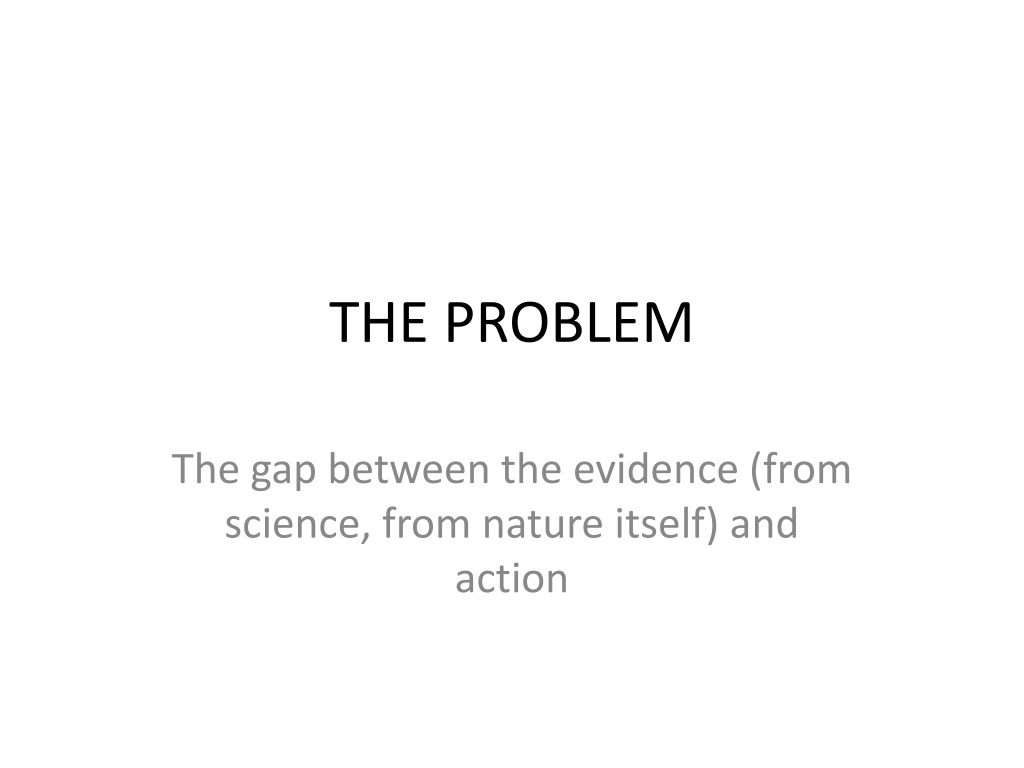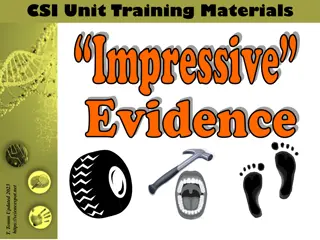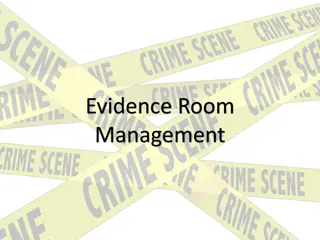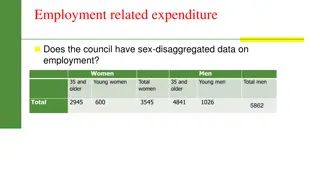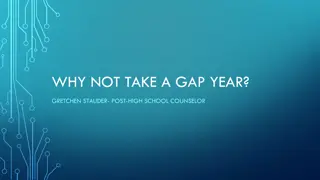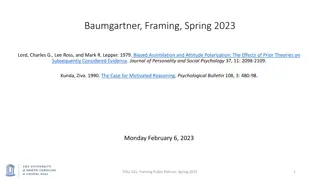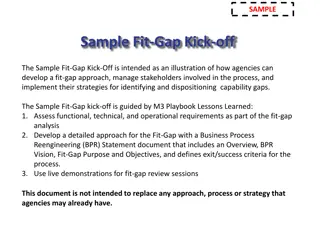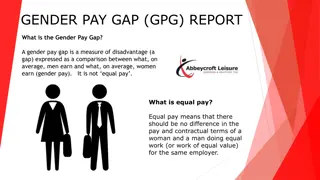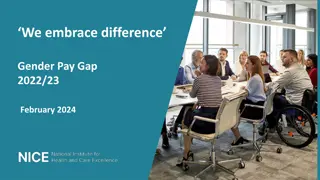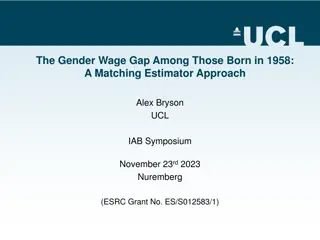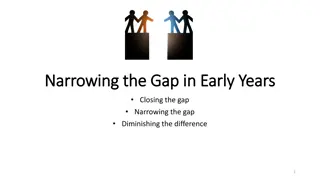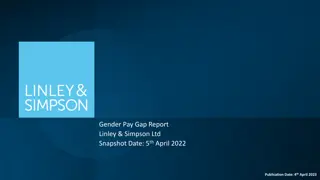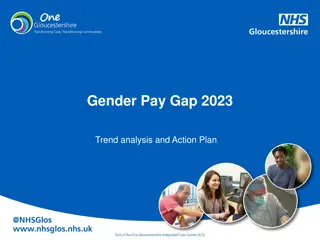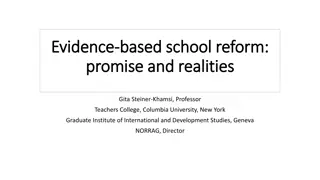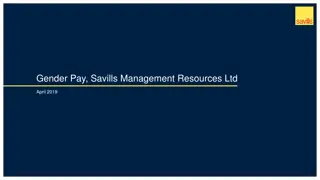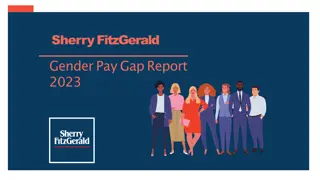Challenges in Addressing the Gap Between Evidence and Action
Society's struggle to bridge the gap between scientific evidence and effective action is hindered by cognitive biases, emotional neglect, and a cultural disregard. The narrative touches on human rationality limits, societal influences, psychoanalytic perspectives, narcissistic tendencies, and the challenges in facing mortality, climate change, and resource dependency.
Download Presentation

Please find below an Image/Link to download the presentation.
The content on the website is provided AS IS for your information and personal use only. It may not be sold, licensed, or shared on other websites without obtaining consent from the author. Download presentation by click this link. If you encounter any issues during the download, it is possible that the publisher has removed the file from their server.
E N D
Presentation Transcript
THE PROBLEM The gap between the evidence (from science, from nature itself) and action
Social Identities and Cognitions We are hard wired to respond to risks that are tangible, imminent and threaten us with immediate losses We understand the world according to the interpretive communities we belong to. We approach evidence using selective attention and various cognitive biases .
Whats missing? Limits to human rationality are acknowledged but the model used is still basically one of the rational actor. A focus on cognitions, frames and narratives but emotions are still largely missing from the picture. Change efforts are directed at the individual/family and institutions (governments, corporations) but the cultural dimension is neglected.
institutions people culture
The individual and society Society has the capacity to either bring out the best or the worst in us
PSYCHOANALYTICALLY INFORMED PERSPECTIVES Go, go, go said the bird: human kind Cannot bear very much reality T.S.Eliott, Burnt Norton
A Culture of Narcissism We see ourselves as uniquely entitled (as individuals, as developed countries, as a species) We have an instrumental relation to others and to nature (human and natural resources) The illusion of mastery/control possesses the mind of both the individual and of the human species
Our culture is poorly equipped to enable us to face the facts of life our mortality, frailty & limits; our vulnerability to chance and fate; our dependency on others/nature for what is life-affirming
We struggle against the feelings elicited by climate change Loss and grief regarding the destruction around us Guilt at our role in this destruction Anxiety when we look into the future Despair when we imagine that we lack the resources to change what is happening
CLIMATE CHANGE DENIAL DENIALISM NEGATION DISAVOWAL
Disavowal One part of the mind sees and knows, another part of the mind says this cannot be true
The non-unitary mind Different parts of the mind see, desire and experience the world in different ways We are always in conflict with ourselves and manage these conflicts as best as we can Whilst some parts of the mind seek truth and growth other parts oppose this We confront climate change through a series of dilemmas in which we feel pulled in different directions
I did not say this young man was lying. I said I am unable to believe him. There is a difference. Supreme Court Judge Felix Frankfurter on hearing an eye witness account of the clearing of the Warsaw Ghetto
Disavowal Just Don t Think About It
you know it's one of those things, the environment, it is a bit like eating meat; if I do it, recognising full well that, how it is produced is often horrendous, and I just choose not to think too much about that, even though, you know in my head, and through reading and understanding you know I know that it is not, not a good scene. And maybe the environment is a bit like that you know, I close off a little bit of, erm, you know I am aware of that something is going on . (Male, teacher, 30 s)
Disavowal Splitting Thought from Feeling
I can remember very clearly when I, er, must have been in my late 20s early 30s, sitting at Heathrow airport with my wife about to catch a flight somewhere, and her remarking that a 747 taking off generates more damage to the environment, er, than a family car driven for a year; and I remember noting this fact with interest, although not at any point changing my view about where we should go on 747s. (male, academic, 50s, partner of fossil fuel company exec)
Recent psychoanalytic thinking about denial sees it as a central component of a more encompassing perverse state of mind which provides protection from anxiety and pain (John Steiner (1993) Psychic Retreats. London: Routledge)
STATE OF MIND An organised configuration of feeling states, (ph)fantasies, relations between parts of the self, defence mechanisms, etc. Perverse State of Mind: As if there is an establishment in the mind with which parts of the self ally, partly because they are seduced, partly out of fear. Self deception, collusion and an artful relation to the truth are the order of the day. When change threatens this alliance the establishment offers furious resistance.
A PERVERSE RELATION TO REALITY Persisting in error as in, i) a blatant or willful refusal to accept error or responsibility or, ii) persisting in a course of action that is clearly going to be damaging to self and others. Artful engagement with the truth Perverse insistence upon the opposite ( fair is foul , war is peace) To lead astray, from the true/right course (as in perverting the course of justice )
PERVERSE INSTITUTIONS EPITOMISED BY BANKING SECTOR CULTURE OF ENTITLEMENT ORGANISED DISAVOWAL COLLUSION INSTRUMENTAL RELATIONS DOMINANT Susan Long (2008) The Perverse Organisation and the Seven Deadly Sins. London: Karnac
PERVERSE GOVERNANCE THE CREATION OF AN AS IF REALITY, A VIRTUAL REALITY OF TARGETS, INDICATORS, COMPARATORS WHICH, THROUGH A COLLECTIVE ACT OF SELF-DECEPTION, POLICY MAKERS COME TO BELIEVE IS REALLY REAL THE CONSTRUCTION OF THIS VIRTUAL REALITY THEN HAS A NUMBER OF PERVERSE CONSEQUENCES
PERVERSE THINKING IN CLIMATE CHANGE INSTITUTIONS Some things cannot be thought about Collusion occurs across the boundary separating different groups of stakeholders eg. Scientists and policy makers Virtualism and International policy making (Kyoto, Paris)
Some things cannot be thought about But there is a mentality in that group that speaks to policy makers that there are some taboo topics . For instance policy makers that have said we must limit climate change to two degrees. Well the emissions are going up like this [gestures] so two degrees at the moment seems completely unrealistic. But you re not allowed to say this. So its, kind of, if you say it you have to be super cautious (Leading UK climate scientist)
THE ELEPHANT IN THE ROOM Climate science and policy has focused on influencing the billions of emitters rather than the few thousand producers. A policy on climate change that ignores production of fossil fuels is like a policy on drugs that ignores the poppy fields, cocaine labs, smuggling networks, and dealers and focuses exclusively on the addicts (George Marshall: Don t Even Think About It )
VIRTUALISM The language of Kyoto and Copenhagen is the language of targets, and the danger is that it is precisely this language .that will appeal to governments who need to look as if they are doing something while safe in the knowledge that they will not be in power when it becomes clear that the targets are not being met
Perverse Culture A culture of entitlement A culture of uncare Cynicism Deep Acting Preoccupation with Resilience
